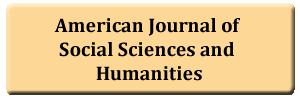A Preliminary Study on the Curriculum Review of the English Language Courses at Akademi Pengajian Bahasa, UiTM
DOI:
https://doi.org/10.20448/804.4.2.263.271Keywords:
Curriculum review, Curriculum development, Needs analysis, Language curriculum, Tertiary, English language.Abstract
Curriculum is defined as an articulation of knowledge, skills and attitudes in the context of intentional and organized programmes of study. The content of curriculum may be organised through learning areas and subjects, as well as through activities or tasks. This study focuses on the needs analysis of a curriculum review of English language courses offered by Akademi Pengajian Bahasa, UiTM, with consideration to Education 5.0, Fourth Industrial Revolution (4IR), and Sustainable Development Goals (SDGs). The objectives of the curriculum review and the needs assessment are to validate the curriculum with the contemporary developments in the world. Twenty-four stakeholders from various faculties and industries, as well as representatives of UiTM alumni were invited to a two-day pre-workshop on how the future of language curriculum should be. Their opinions and feedback on the current language skills and courses were recorded and analysed. Thus, common themes were identified. Amongst the suggestions given were to increase opportunities to speak, to build character and image, and to bridge courses based on new media needs. This also includes the need to focus on the ability to discuss and express ideas clearly in group discussions. The implications of this exercise serve as the guideline of a framework for relevant and future language skills and courses, which will fulfil the needs of the 21st century communication skillsets.



